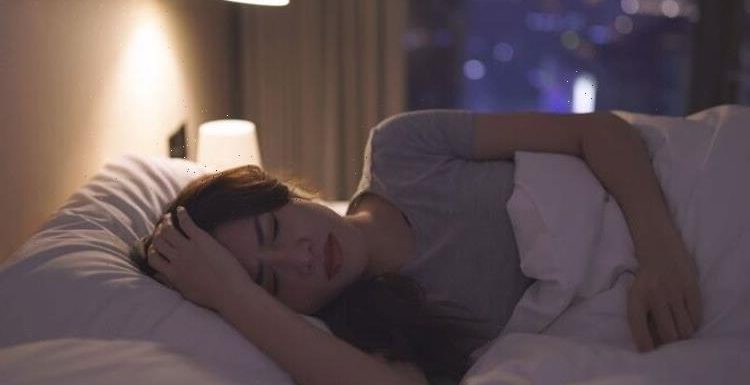
Olympian Greg Rutherford shares his top tips on sleep
We use your sign-up to provide content in ways you’ve consented to and to improve our understanding of you. This may include adverts from us and 3rd parties based on our understanding. You can unsubscribe at any time. More info
Paper author and sleep expert Dr Phyllis Zee of Illinois’ Northwestern University said: “The results from this study demonstrate that just a single night of exposure to moderate room lighting during sleep can impair glucose and cardiovascular regulation.” These, she explained, are risk factors for diabetes, heart disease and metabolic syndrome. Dr Zee added: “It’s important for people to avoid or minimise the amount of light exposure during sleep.”
In their study, the researchers recruited 20 participants and monitored the impact on their health of spending a night sleeping in a room illuminated by overhead lighting (at 100 lux) versus spending a night sleeping in dim light (at just 3 lux).
The team found that under both conditions, the subjects’ levels of melatonin — the hormone that regulates sleep cycles — remained similar.
However, those that slept under the brighter lights entered a higher alert state, exhibiting higher levels of insulin resistance, a faster heart rate and less variability of heart rate than their counterparts in the dimmed room
The results, the team said, suggest that exposure to light while one sleeps can increase the activation of the sympathetic nervous system and also impair glucose balance.
The sympathetic nervous system is the part of our bodies that controls our fight-or-flight response, but it also helps maintain “homeostasis”, keeping our systems at a steady state.

Paper author and neurologist Dr Daniela Grimaldi, also of Northwestern University, said: “We showed your heart rate increases when you sleep in a moderately lit room.
“Even though you are asleep, your autonomic nervous system is activated. That’s bad.
“Usually, your heart rate together with other cardiovascular parameters are lower at night and higher during the day.”
The findings build on previous studies that indicated that light exposure during the daytime serves to activate the sympathetic nervous system, increasing one’s heart rate.
In this way, the team explained, daylight kicks our hearts into “high gear” and increases our alertness so that we can better meet the challenges of the day.
Dr Zee said: “Our results indicate that a similar effect is also present when exposure to light occurs during nighttime sleep.”
At night, our bodies are supposed to be administered by the parasympathetic nervous system, which plays a role in so-called “rest-and-digest” functions at night.


The study also builds on previous work that suggested that people who get more exposure to light when they sleep tend to be more likely to be either overweight or obese.
Dr Zee said: “Now we are showing a mechanism that might be fundamental to explain why this happens — it’s affecting your ability to regulate glucose.”
As insulin resistance increases, the researchers explained — such as is caused by sleeping in a lit room — fat, liver and muscle cells struggle to take glucose from the bloodstream for energy.
As a result, the pancreas ends up producing more insulin to compensate, and over time blood sugar levels can rise, risking health complications through diabetes.
According to the team, the participants in the study were not consciously aware of the biological changes that happen in their bodies when they sleep in a well-lit room.
However, the brain does sense it, Dr Grimaldi explained, adding: “It acts like the brain of somebody whose sleep is light and fragmented.
“The sleep physiology is not resting the way it’s supposed to.”
DON’T MISS:
Putin’s energy grip on Europe slips as new report pulls rug from Russia [INSIGHT]
Biden beefs up Ukraine’s defence with ‘kamikaze Switchblade drones’ [REPORT]
Putin blinks first: Bumper gas supplies sent to EU [ANALYSIS]

Dr Zee said: “These findings are important, particularly for those living in modern societies where exposure to indoor and outdoor nighttime light is increasingly widespread.”
Exposure to artificial light at night has become common, the team note, with urban areas being particularly bad for sources of light pollution.
Meanwhile, it has been estimated that as many as 40 percent of people go to sleep with either a light or their television on in their bedroom.
The full findings of the study were published in the Proceedings of the National Academy of Sciences.
Source: Read Full Article